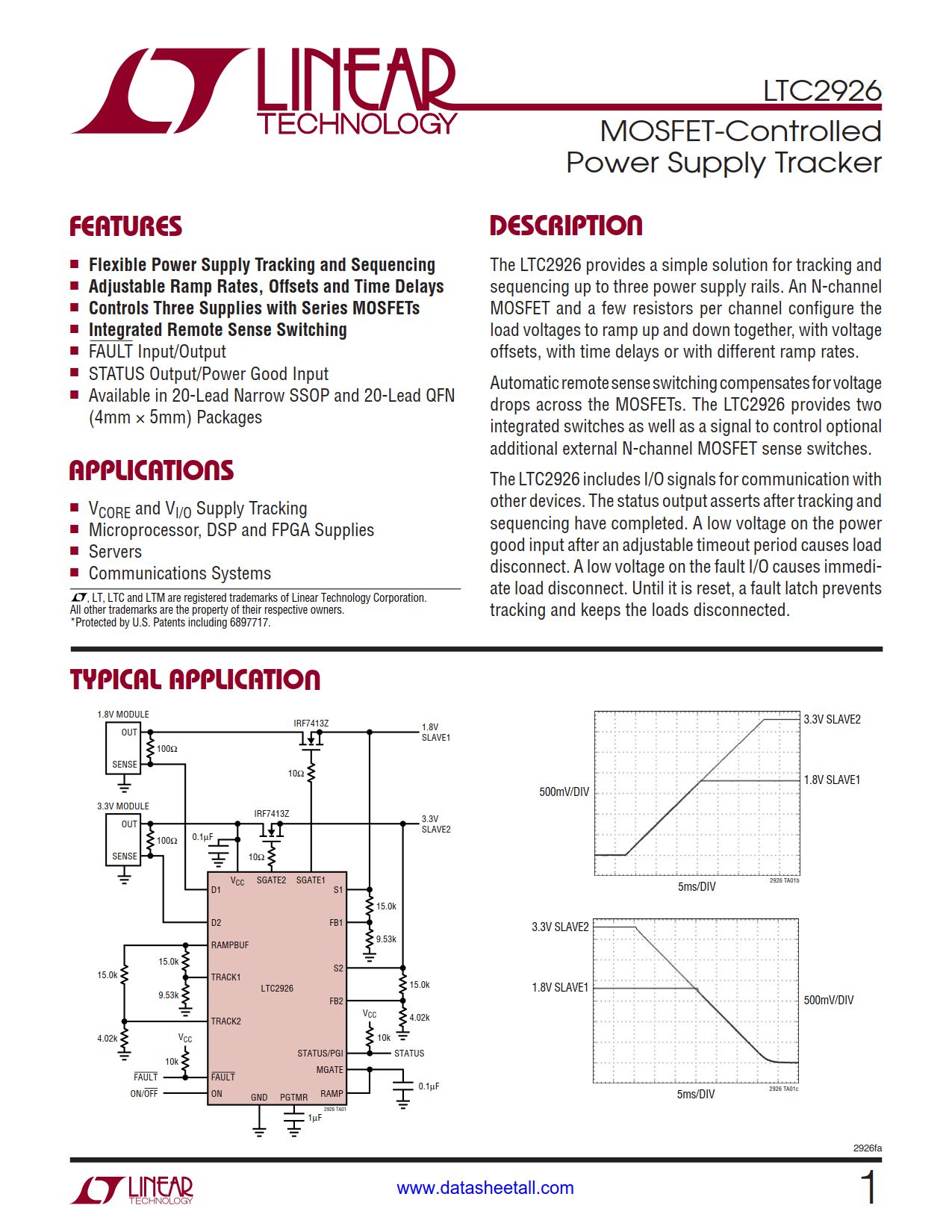
| Part No.: | LTC2926 |
| Page: | 28 Pages |
| Size: | 475 KB |
| Manufacturer: | Linear Technology |
| Logo: |  |
| Views: | 1 |
| Update Time: | 2024-11-15 15:25:13 |
| DataSheet: | Download |
| Part No. | Packing | SPQ | Marking | MSL | Pins | Temp Range | Package Description | Buy |
| LTC2926CGN#TRPBF | Reel | 2500 | LTC2926CGN | 1 | 20 | 0°C ~70°C | 20-Lead SSOP | |
| LTC2926CGN#TRMPBF | Reel | 500 | LTC2926CGN | 1 | 20 | 0°C ~70°C | 20-Lead SSOP | |
| LTC2926IGN#PBF | Tube | 55 | LTC2926IGN | 1 | 20 | -40°C ~85°C | 20-Lead SSOP | |
| LTC2926IGN#TRPBF | Reel | 2500 | LTC2926IGN | 1 | 20 | -40°C ~85°C | 20-Lead SSOP | |
| LTC2926IGN#TRMPBF | Reel | 500 | LTC2926IGN | 1 | 20 | -40°C ~85°C | 20-Lead SSOP | |
| LTC2926CUFD#PBF | Tube | 73 | 2926 | 1 | 20 | 0°C ~70°C | 20-Lead QFN (4mm x 5mm x 0.75mm) | |
| LTC2926CUFD#TRPBF | Reel | 2500 | 2926 | 1 | 20 | 0°C ~70°C | 20-Lead QFN (4mm x 5mm x 0.75mm) | |
| LTC2926CUFD#TRMPBF | Reel | 500 | 2926 | 1 | 20 | 0°C ~70°C | 20-Lead QFN (4mm x 5mm x 0.75mm) | |
| LTC2926IUFD#PBF | Tube | 73 | 2926 | 1 | 20 | -40°C ~85°C | 20-Lead QFN (4mm x 5mm x 0.75mm) | |
| LTC2926IUFD#TRPBF | Reel | 2500 | 2926 | 1 | 20 | -40°C ~85°C | 20-Lead QFN (4mm x 5mm x 0.75mm) | |
| LTC2926IUFD#TRMPBF | Reel | 500 | 2926 | 1 | 20 | -40°C ~85°C | 20-Lead QFN (4mm x 5mm x 0.75mm) |
The LTC2926 provides a simple solution for tracking and sequencing up to three power supply rails. An N-channel MOSFET and a few resistors per channel configure the load voltages to ramp up and down together, with voltage offsets, with time delays or with different ramp rates.
Automatic remote sense switching compensates for voltage drops across the MOSFETs. The LTC2926 provides two integrated switches as well as a signal to control optional additional external N-channel MOSFET sense switches.
The LTC2926 includes I/O signals for communication with other devices. The status output asserts after tracking and sequencing have completed. A low voltage on the power good input after an adjustable timeout period causes load disconnect. A low voltage on the fault I/O causes immediate load disconnect. Until it is reset, a fault latch prevents tracking and keeps the loads disconnected.